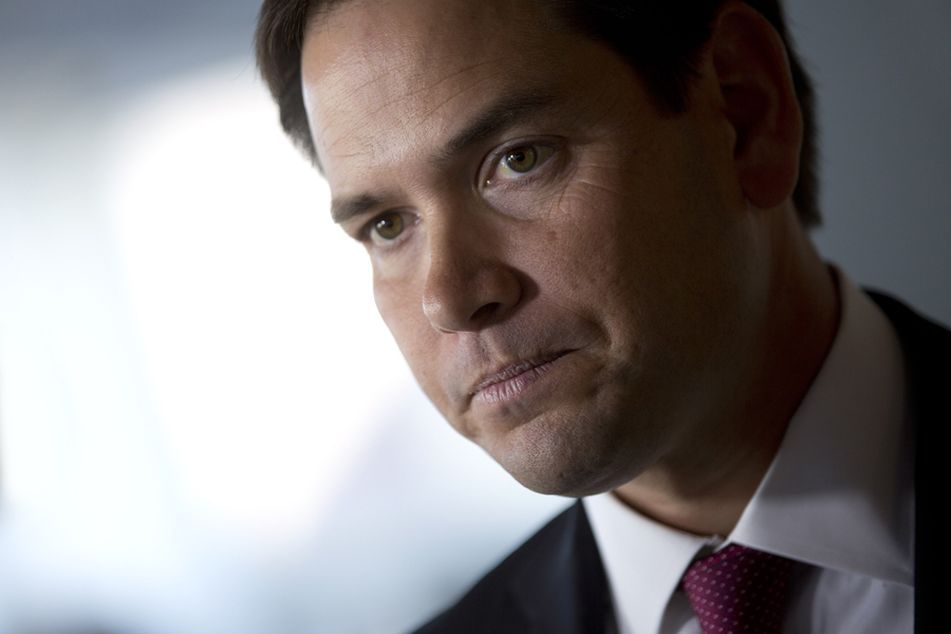Rubio-Lee tax plan eliminates deductions and ties large, small business rates
 Sen. Marco Rubio, R-Fla.
Sen. Marco Rubio, R-Fla.
Possible presidential hopeful seeks to simplify tax code with two rates for income taxes, one for corporate taxes.
A tax reform proposal floated Wednesday by two senators, including one who may run for president, would eliminate almost all special tax breaks while ensuring that large and small businesses pay the same tax rate.
Sen. Marco Rubio, R-Fla., and Sen. Mike Lee, R-Utah, introduced a plan that would establish two individual tax rates — 15% for incomes up to $75,000 and 35% for earnings above that level — and would eliminate all tax deductions except those for mortgage interest and charitable giving.
The plan also would end the estate tax and taxation of capital gains and dividends. On the corporate side of the tax ledger, it would consolidate all business taxes into a 25% rate, a ceiling that also would apply to businesses that pay taxes through their owner’s personal income tax return.
The senators put the plan out as a white paper and hope to turn it into legislation as Congress begins to debate comprehensive tax reform.
“The vast and overwhelming majority of Americans will see significant tax relief here,” Mr. Rubio, who is mulling a presidential campaign, said at a Capitol Hill press conference. “Our hope here is to trigger economic growth. We believe economic growth will help all Americans to improve how much money they make by creating better-paying jobs.”
The Rubio-Lee plan would ensure that businesses organized as C corporations and those that are S corporations, or pass-throughs, pay the same tax rate. Skeptics of corporate-only tax reform argue that lowering the corporate rate without addressing businesses that operate off of their owner’s tax return would give an unfair advantage to the traditional business model.
Many financial advisers operate their practices as pass-throughs.
“We want them to have parity in the tax code with big businesses because that’s where a significant amount of our business activity is occurring in America today,” Mr. Rubio said.
Although that dimension of the plan may appeal to investment advisers, the senators’ advocacy for eliminating almost all favorable tax treatment in the code likely will be less popular.
Mr. Lee acknowledged that for the plan to survive, he would have to take on dozens of groups that will try to save their cherished tax breaks from the chopping block.
“We’re trying to narrow it down to what most Americans rely most on in the code,” Mr. Lee said. “In order to achieve the level of simplicity that we need, we concluded it was appropriate to narrow it all down to these two deductions [mortgage and charitable]. If you ask most Americans, hard-working Americans would tell you they would like more simplicity and that’s what we’re trying to achieve.”
The senators downplayed questions about how to pay for the tax reductions. They said the plan must be viewed within the context of generating high economic growth and being paired with a similar effort to cut federal spending and reduce the deficit.
“This is not a take-it-or-leave-it offer,” Mr. Rubio said. “But I think it is a massive first step toward what I hope will be the kind of pro-growth, pro-family tax reform that our nation needs.”
[Correction: An earlier version of this story indicated the Rubio-Lee plan would eliminate retirement savings tax deferrals as well, which is incorrect.]
Learn more about reprints and licensing for this article.








